During the launch of the Scaling-Up Program in Lira, the Lira Catholic Diocese joined the Ministry of Health and community task forces in a collective pledge to fight stigma, expand testing, and offer hope to sickle cell warriors.
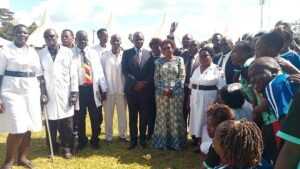
By Flavia Oyuu, Communications Office, Lira Diocese
Under the bright Tuesday sun of October 14, 2025, the Mayor’s Garden in Lira City turned into a symbol of hope and unity as hundreds gathered for the launch of the Scaling Up of the Prevention and Treatment of Sickle Cell Disease in Lira Regional Referral Hospital (LRRH) and lower health facilities across the Lango Sub-region.
The event, led by the Minister of Health and Woman Member of Parliament for Lira City, Hon. Dr. Jane Ruth Aceng Ocero, brought together health experts, cultural and religious leaders, students, and the faithful including representatives from Lira Diocese, which joined as one of the newly formed task forces to champion awareness, testing, and care for those affected.
Beyond official speeches, the day became one of shared stories, of pain, courage, and resolve reminding all present that sickle cell disease is not just a health issue but a human one.
Stories of Strength and Survival
Birungi Nassali Hajara, a midwifery student at the Islamic University in Uganda, shared a heartfelt testimony. She said she never knew her sickle cell status until June 2025, when she attended a screening training at the Central Health Laboratories.
“I thought I didn’t need to test because no one in my family had ever been sick,” she said softly. “But I discovered I was a carrier. That’s why I am calling upon all youth to get tested early, it can save lives.”
Her story resonated deeply with Sheikh Ibrahim Okello, the Lango Khadi, who revealed how ignorance about the disease cost him dearly.
“People said witchcraft was killing my children,” he recalled. “But the truth came when doctors found all three of us myself and my two wives were carriers. I lost ten children. That pain drives me to fight this disease through awareness.”
Adding a voice of hope, Mrs. Ruth Nankanja Mukibi, Chairperson and Founding Director of the Sickle Cell Association of Uganda, testified to the power of knowledge and faith.
“I was diagnosed at six months old, and today I am 51,” she said. “I’ve been married for 22 years to an AA husband, and together we have three children one SS, one AS, and one AA. My mission is to fight stigma and spread hope because sickle cell should never be a sentence of shame.”
Health Experts Speak Out
The Director of Lira Regional Referral Hospital, Dr. Andrew Odur, presented the regional report, explaining that sickle cell disease is inherited, not contagious.
“A child gets sickle cell disease when both parents carry the sickle gene, and the child receives the sickle gene from each,” he said.
He noted that in the past month alone, 7,500 pupils from 12 schools had been tested, and trainings held for schools, health workers, and church leaders. The hospital’s clinic currently serves over 1,500 children living with sickle cell, 900 of whom are on Hydroxyurea treatment.
“We urge all Health Centre IVs to build capacity to handle the growing number of patients,” he emphasized.
Adding a national view, Dr. Charles Olaro, the Director General of Health Services, said Uganda remains among the top five most affected countries.
“Each year, about 20,000 children are born with sickle cell disease, and around 13% of the population are carriers,” he said. “Sickle cell is now rivaling malaria in numbers and must be addressed with equal urgency.”
He announced that the new Wellness Clinic and Laboratory at LRRH will not only support sickle cell screening but also test for malaria, HIV, hepatitis, cancers, and lifestyle diseases.
“We want people to see hospitals not as places for the sick, but as centers for early detection and wellness,” Dr. Olaro said.
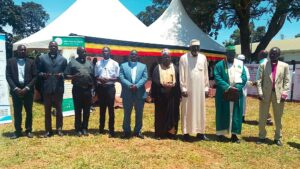
Culture, Faith, and Community Commitment
Representing the Won Nyaci me Lango, Geoffrey Ocen affirmed that cultural structures remain vital in the campaign.
“Before religion and politics, our culture guided families wisely,” he said. “We shall work with government and the Church to educate couples and communities about sickle cell disease.”
Faith leaders reinforced this message through a strong presence which joined the citizen-led task forces to champion awareness, testing, and care. At the launch, the Diocese was represented by Monsignor Dr. Polycarp Opio, Vicar of the Clergy, who represented the Bishop Lira Diocese, Rt. Rev Sanctus Lino Wanok, and accompanied by the Coordinator of the Health Department of Lira Diocese, Rev. Sr. Maria Goretti among others.
Together, they pledged to mobilize their faithful, work closely with health and cultural leaders, and support initiatives that educate communities, encourage testing, and provide compassionate care to families affected by sickle cell disease.
Local Government Pledge
The Deputy City Clerk of Lira City appealed to the Minister for additional staffing at LRRH to support the scale-up. He said a request had been submitted to the Ministry of Public Service to raise staffing from 16% to 35%.
“As a city, we are ready to take up this program and ensure all our health workers contribute to this fight,” he pledged.
Minister’s Call for Urgent and United Action
In her keynote address, Hon. Dr. Jane Ruth Acieng Ocero commended the people of Lango including the Church, cultural, and civic leaders for taking leadership in a fight that touches every family.
“Uganda faces one of the highest burdens of sickle cell in the world,” she said. “Each year, 20,000 children are born with the disease, and without timely diagnosis and care, up to 80% will not see their fifth birthday. This is not just a health statistic it is a matter of justice and human dignity.”
She highlighted government milestones establishing over 100 sickle cell clinics, promoting Hydroxyurea as a choice treatment, and integrating sickle cell care into the Non-Communicable Disease Department. She also announced the formation of a National Task Force to draft a policy framework for prevention and treatment.
“These are not temporary interventions,” she noted. “They are deliberate steps to make sickle cell care part of our national health routine. The question is not whether solutions exist they do but whether we will act with urgency and scale.”
She thanked all partners including Bristol Myers Squibb and Texas Children’s Hospital through Baylor Uganda, Religious leaders, and community leaders for their commitment and officially launched the new Wellness Clinic, Laboratory, and Citizen-led Task Forces.
“Government stands ready to lead and join hands with others to make sickle cell disease not a sentence for suffering, but a story of hope,” she concluded.
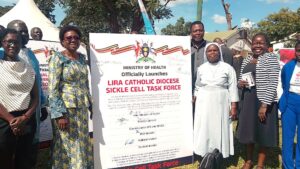
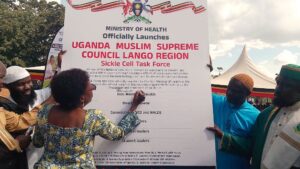
A United Step Forward
The launch featured a blood donation drive, testing, and a public march that brought together cultural leaders, students, and clergy from all denominations.
As the choir from Lira Diocese led the closing hymn, the atmosphere was one of unity and resolve a living sign that when faith and science walk together, even the toughest battles can be won.
Sickle cell disease may begin in the blood, but its solution lies in the heart of a united community.

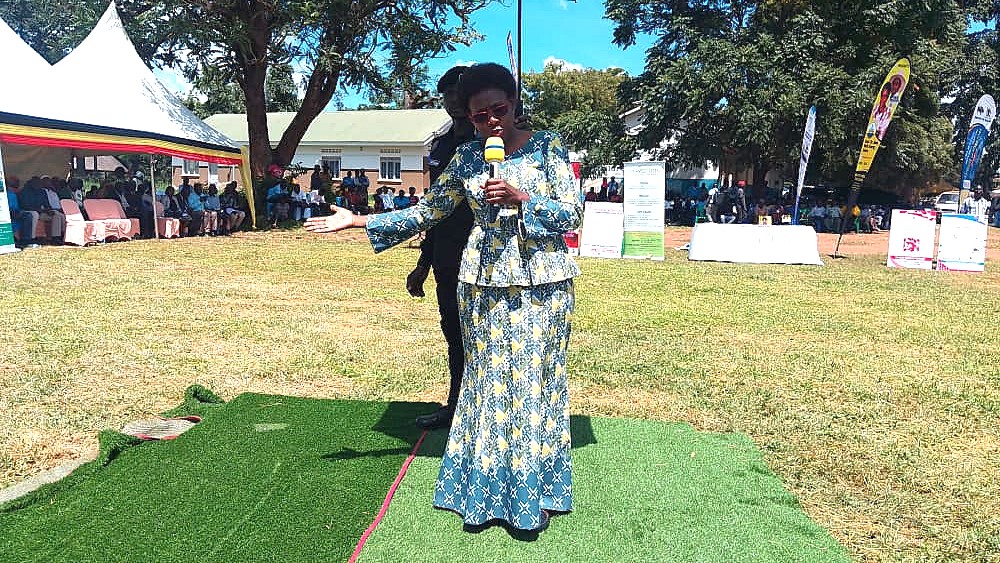
Recent Comments